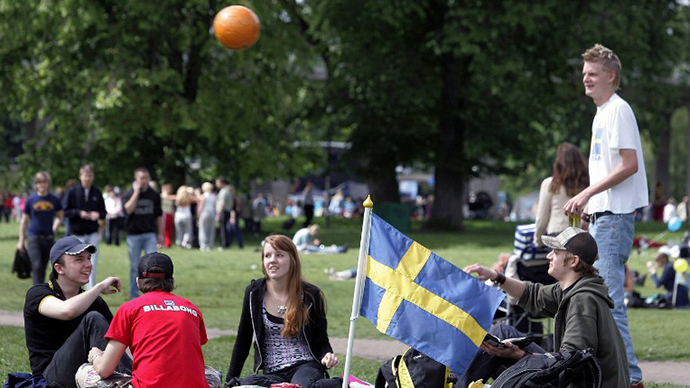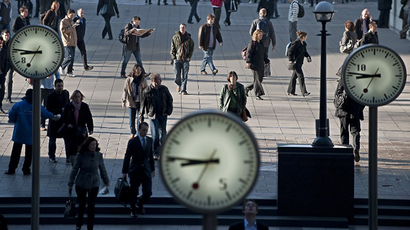More time for saunas? Sweden tries cutting working day to 6 hours

The local government of Gothenburg, Sweden, is to begin a yearlong experiment to see if cutting the working week to 30 hours will be more efficient. It is hoped working less hours will cut down on sick leave, and save money.
Under the plan, the employees will remain on the same pay.
"We think it's time to give this a real shot in Sweden," as deputy mayor Mats Pilhem told the Swedish edition of The Local.
He explained that the municipal council experiment would involve two different departments: a test group and a control group. The working week of the staff in the first section won’t exceed six hours a day, while their colleagues in a different section will stick to the ordinary forty-hour week schedule. All employees will be given the same pay.
“We’ll compare the two afterwards and see how they differ. We hope to get the staff members taking fewer sick days and feeling better mentally and physically after they’ve worked shorter days,” Pilhem told The Local.
He added that the local car factory had already experimented with shorter working hours and the results showed an increase in productivity. It’s hoped the practice will create more jobs and reduce inefficiency in the public sector.
The move has been criticized by the city council opposition - the Moderate Party, which reportedly described the experiment as a “dishonest and populist ploy” on the eve of the 2014 local elections.
However the council’s executive committee refuted the statement, arguing “We've worked a long time on this, we've not planned it to be an election thing. These people [Moderates] are always against shortening hours.”
Currently, Belgium and the Netherlands enjoy a 30-hour working week, with an average worker in Germany, Europe’s biggest economy, spending 35 hours a week at work.














